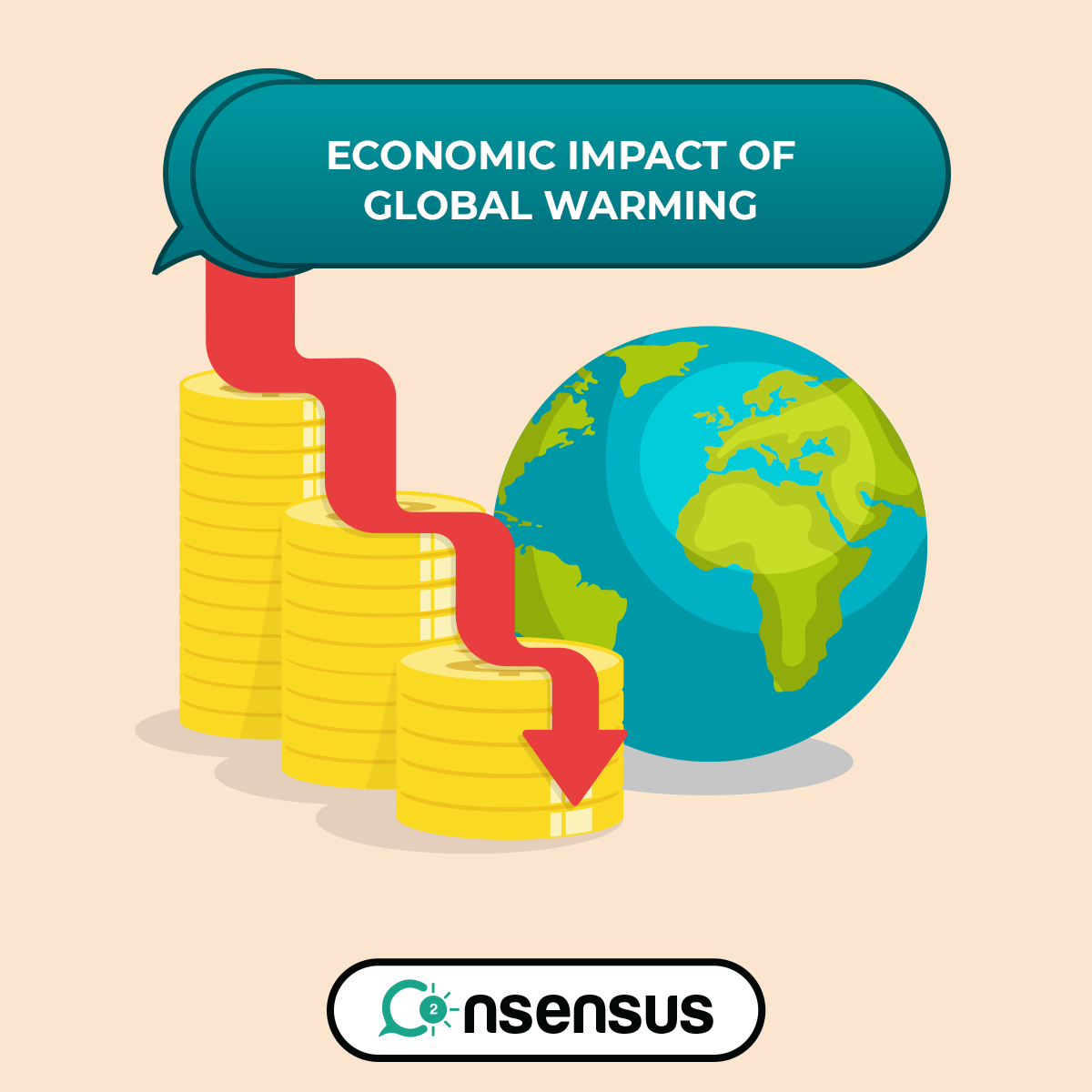Climate change is the disruption in the long-term seasonal weather patterns. It’s caused by global warming. The average temperature has risen around 1 degree Celsius, or 1.9 degrees Fahrenheit, since 1880. That’s faster than at any other time in the Earth’s history.
The United States is one of the world’s richest countries. As a result, a recent study found that the planet’s wealthiest 1 billion people emit 60% of greenhouse gases. The poorest 3 billion produce only 5%.
Global warming is undoubtedly considered to be a global issue that needs to be addressed as soon as possible. Scientists and economists are beginning to grapple with the serious economic and environmental consequences if we fail to reduce global carbon emissions quickly and deeply.
Effects of global warming such as a rise in the sea level, frequent floods, droughts, wildfires, and extreme storms all result in extensive damage to infrastructures such as homes, roads, bridges, railroad tracks, airport runways, power lines, dams, and seawalls.
Another effect of global warming is mass migration and security threats. Global warming is likely to increase the number of people who are forced to leave their homes because of drought, flooding, or other climate-related disasters. Mass movements of people and social disruption may lead to civil unrest, and might even spur military intervention and other unintended consequences.
Moreover, farmers might need to irrigate previously rain-fed areas, cool vulnerable livestock, and manage new or more numerous pests. Local and state governments that tend to take early steps to ensure that houses are more energy efficient, and build early warning systems for heat waves and disasters and add emergency responders are more likely to cope with extreme events. Governments may also have to build seawalls, contain sewer overflows, and strengthen bridges, subways, and other critical components of the transportation system.
Studies show that rebuilding after disasters strike is likely to prove even more costly than these preventive measures. And these costs do not include those stemming from lives lost and other irreversible consequences of allowing heat-trapping gases to accumulate unchecked in our atmosphere.
Since 1980, extreme weather has cost $1.6 trillion. Munich Re, the world’s largest reinsurance firm, blamed climate change for $24 billion of losses in the California wildfires. It warned that insurance firms will have to raise premiums to cover rising costs from extreme weather. That could make insurance too expensive for most people.
Scientists estimated that, if temperatures only rose 2 ºC, global gross domestic product would fall 15%. If temperatures rose to 3 ºC, global GDP would fall 25%. If nothing is done, temperatures will rise by 4 ºC by 2100. Global GDP would decline by more than 30% from 2010 levels.
The industries that are considered to be most at risk are agriculture, fisheries, and forestry. Maine is already seeing a decline in its lobster catches. Natural disasters have already cost 23 million working life years since 2000. On the other hand, efforts to stop climate change would create 24 million new jobs by 2030.
Global warming has resulted in an increase in overall temperatures. Countries like America now experience extremely hot days, which has resulted in an increase in the food prices. Corn and soybean yields in the United States plummet precipitously when temperatures rise above 84 degrees Fahrenheit. Those crops feed cattle and other meat sources. It’s created spikes in beef, milk, and poultry prices. Worker productivity declines sharply, particularly for outdoor jobs. That is why it further increases the cost of food.
Another 2019 study found that a warming ocean has pushed global fish yields down 4% since 1920. That’s 1.4 million metric tons. In the North Atlantic and Sea of Japan, that decline is 35%. That affects Atlantic cod, haddock, and herring. Many species are threatened with extinction. That affects the 3 billion people who rely on fish for their primary source of protein. It also affects the $100 billion fishing industry and the 56 million people employed. It especially affects the United States, which imports 90% of its seafood.
There is no doubt that climate change is a global reality that must be addressed now. The huge quantities of carbon dioxide pumped into the atmosphere over the past century are warming temperatures at a seriously rapid rate. Because of this, flooding, extreme weather, wildfires, loss of habitat and other natural disasters are occurring more frequently and at a greater degree of intensity than was ever recorded.
It is now the need of the hour to take firm, decisive, and committed actions today in order to avert an added temperature rise exceeding 2 ºC or 35.6 F. This is the world’s tipping point before permanent catastrophes descend and change life as we all know it. Today, we only have 0.5 ºC leeway before this happens. It’s about time that we realize we are quickly running out of time and need to do something now before it is extremely late.
